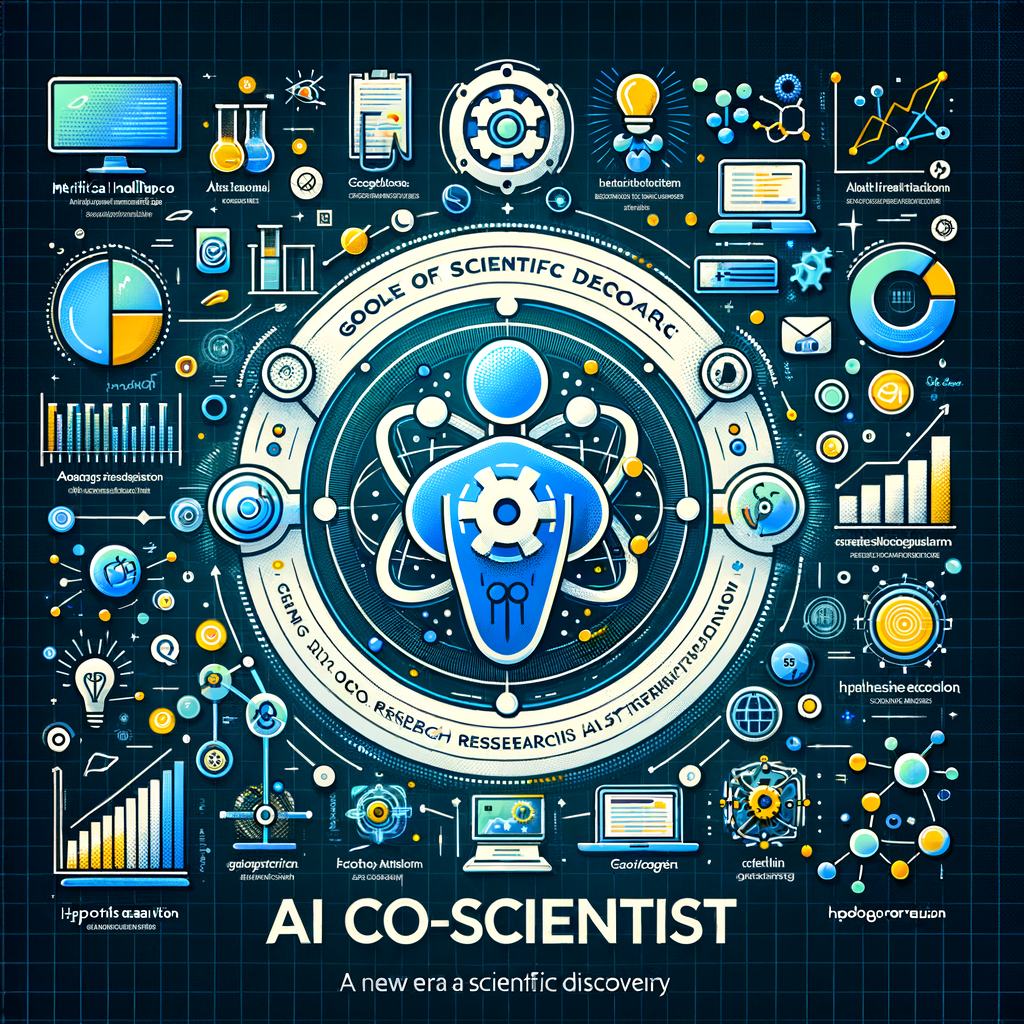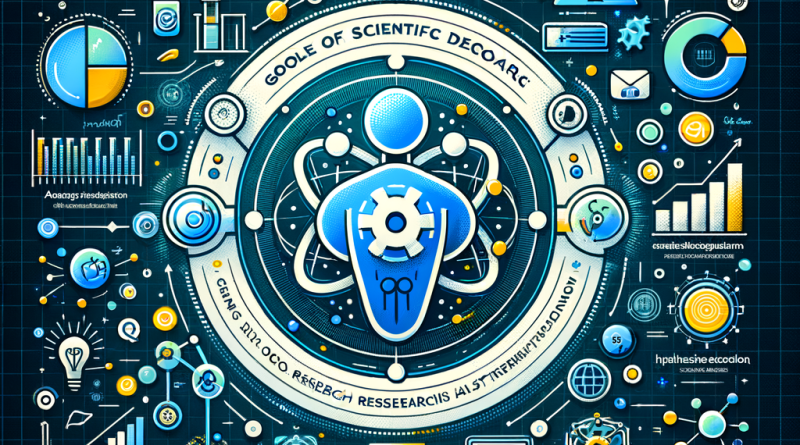**”Google’s AI Co-Scientist: Revolutionizing Hypothesis Generation in Research”**

“`html
Google Introduces AI Co-Scientist: A Game-Changer in Hypothesis Generation
Google has taken a big step in AI-driven scientific research with the launch of its AI Co-Scientist, a multi-agent system designed to automate the process of hypothesis generation, evaluation, and refinement. This revolutionary tool, built on Gemini 2.0, aims to transform the speed and efficiency of research across various domains.
What Is AI Co-Scientist?
Google’s AI Co-Scientist mimics the scientific method by analyzing vast datasets, integrating interdisciplinary insights, and refining hypotheses. The system is structured using a multi-agent framework with six specialized sub-agents, each assigned distinct tasks to enhance the quality of hypotheses.
Key Features of AI Co-Scientist
- Multi-Agent System: Harnesses the power of six AI agents to generate, evaluate, and refine hypotheses.
- Hierarchical Structure: Supervised by a top-tier agent that dynamically assigns tasks.
- Learning & Self-Improvement: Utilizes test-time compute scaling, applying self-play, ranking tournaments, and automated critiques for hypothesis refinement.
In initial testing conducted at Stanford University and Imperial College, AI Co-Scientist identified potential drug applications and gene transfer mechanisms in just a few days — an astonishingly short timeline compared to traditional methods.
Understanding the Multi-Agent Architecture
This AI-powered research assistant consists of six specialized agents:
- Generation Agent: Creates new hypotheses from large scientific datasets.
- Reflection Agent: Examines and refines the hypotheses.
- Ranking Agent: Prioritizes hypotheses based on their novelty and viability.
- Evolution Agent: Iteratively improves hypotheses through AI-driven analysis.
- Proximity Agent: Ensures that proposed hypotheses stay grounded in existing research.
- Meta-Review Agent: Conducts final assessments before hypotheses are published.
Benchmark Performance & Experimental Validation
Google tested the AI Co-Scientist across multiple research domains by measuring:
- Education-Based Evaluation: The system scored highly on GPQA diamond-style questions, indicating its deep reasoning capabilities.
- Expert Research Tasks: In 15 real-world research scenarios, AI Co-Scientist outperformed advanced reasoning models.
- Computational Scaling: The more computational power allocated, the more refined and accurate its hypothesis iteration process became.
AI Co-Scientist has already contributed to research in:
- Drug Repurposing: Identifying alternative applications for existing drugs in cancer treatment.
- Liver Fibrosis Studies: Discovering new epigenetic treatment candidates.
- Antimicrobial Resistance: Independently detecting bacterial gene transfer mechanisms that had not yet been published.
How Can Researchers Access AI Co-Scientist?
Google has opened access to AI Co-Scientist through its “Trusted Tester Program.” This initiative allows research institutions to collaborate, experiment, and refine hypotheses in real time using Google’s AI system.
Final Thoughts
By integrating AI into the hypothesis generation process, Google is pushing scientific research into a new era of efficiency. The AI Co-Scientist has the potential to reshape discovery timelines and empower researchers to focus more on experimentation rather than time-consuming hypothesis testing. As AI-driven research assistants become more mainstream, we may witness a golden era of accelerated breakthroughs across multiple disciplines.
#AIResearch #ArtificialIntelligence #MachineLearning #HypothesisGeneration #GoogleAI #TechInnovation
“`
